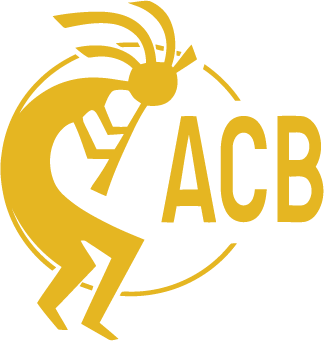
With the closing of the 2022 Beijing Olympics, thoughts turn to, uh, different times. When cooperation and collaboration seemed to be more accessible. Here’s a look-back to 2008 summer Olympics in Beijing.
Beijing Brief: The Da Shui Gua (The Big Watermelon)
By Mike Violette
August 2008
Traveling between Taipei and Beijing kills a day. A very fast crow could fly direct in about four hours, but looping through Hong Kong puts the kabash on leaving at breakfast and arriving for lunch.
But we do what we have to do and get onto Beijing for a few days of the 2008 Olympics spectacle.
Here are a few items, some observations and collected thoughts.
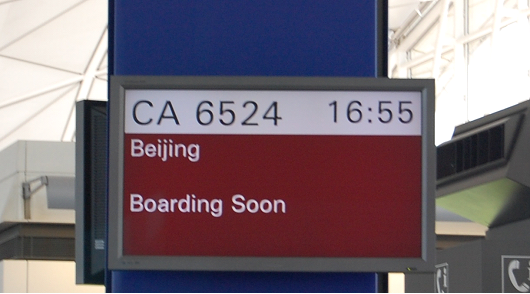
For starters, the city was as friendly as a city of 15 million souls could be. The crowds were no worse than other times and in fact, were generally cordial and good-spirited, I’d not be far-off to say that a celebratory mood prevailed. Security was well-managed, queues were tolerable and most people had taken smile training. Legions of volunteers manned information tables and politely provided what help they could. Lots of cameras, no restrictions on picture-taking were evident (not that it would be possible to halt the millions of cameras in the city). There was an official “guide of conduct” which emphasized the not unexpected restrictions on demonstrations and unauthorized protests. No one really seemed to care and people moved (in droves) about the city. Athletic accomplishments were celebrated with joy across “borders.” Aw what the heck, everyone seemed to be having fun.
The new gleaming airport shines. I remember coming here for the first time in 1999 to the old-old airport (before the old-new terminal was built): dingy, shabby and somber, reeking of neglect. This new edifice fairly sings. High, arched and lighted. Terminal 3 or “T3” is served by a Bombardier-manufactured light rail that runs about 60 mph (my guess) between the gates and the main terminal. A sign says: “Relax, another train is coming in three minutes.”
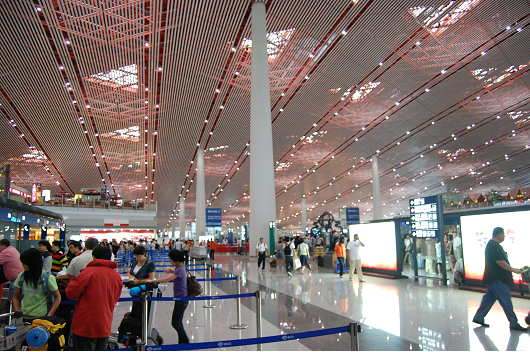
Naturally, Olympic advertisement is all over. Watch out world, the Chinese are learning (and hiring) the finesse of expert branders and do nothing small: every significant space is hung with the logos and tagline of these games: “One World. One Dream”. It is mind-boggling imagine the factories churning out millions of square feet of banners and signs, along with T-shirts, hats commemorative doo-dads and other paraphernalia of a well-orchestrated global PR effort.
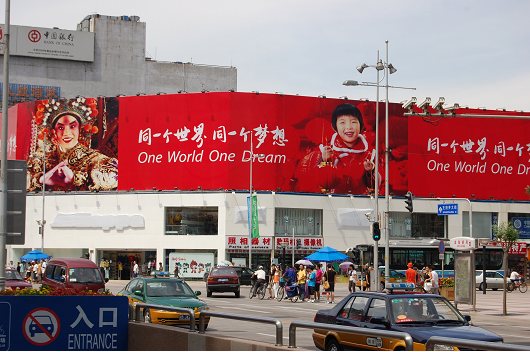
On arrival, a customary gray pall hangs over the city and my own mood shifts: Beijing can have dreary hot and sticky weather, exacerbated by dusty, gritty pollution, but this was to be a transient condition, at least during our stay there. Perhaps the strategies to clean the air (shut down polluting factories, limiting car traffic and, could it be, monkeying with rainfall(?)) has yielded the desired result. Or it could have been just good fortune.
The view from my window at the Canadian International School (CIS), where we are the guests of the agreeable and convivial teacher cum-citizen of the world Darryl from Canada (we will have a proud North American co-shared Olympic moment a little later on) is of the school playground. The CIS is a K-12 school that caters to foreigner’s kids. In crowded Beijing, space is tight and everything is squeezed together–neatly and sometimes not-so-neatly–like a giant urban jigsaw puzzle.
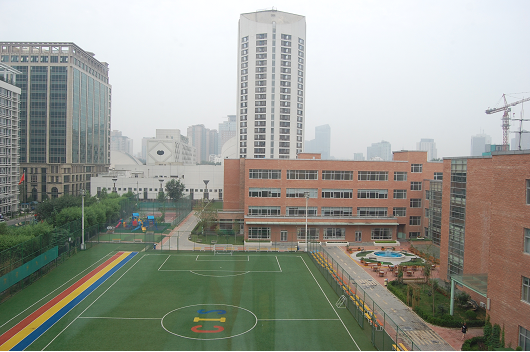
I can only see two construction cranes from the back window; it must be a pretty limited view.
The CIS made arrangements to shuffle its teachers around in preparation for housing the hordes of Olympic visitors; there was still some room at the inn and we are the recipients of that largesse. We’re hunkered down in a basic suite in a comfortable apartment building with Canadian wrestlers and other athletes from our biggest trading partner.
The location is ideal: not very far from the subway and “Lucky Street”, a sort of papier-maché mini-mall that features one of every kind of “ethnic” restaurant squeezed together side-by-side. The selections range from pasta to a “Paris Patisserie” to “Nashville” bar to a Japanese restaurant and other themes from around the globe.
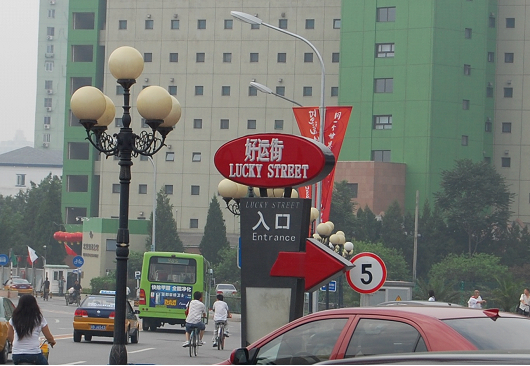
I love these theme projects in China, which are sprinkled about many places in the country. Many of them seemed to have been designed by the developers after looking at a few travel magazines. There’s absolutely no pretension and few locals who seem to frequent these places; they appear to mostly appeal to expatriates and tourists who seek a safe haven in an unfamiliar land.

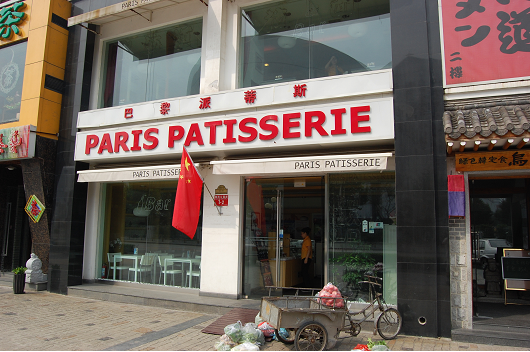
There are no croissants at the patisserie (nor much else), but the German Bakery offers good bread and we choose a few sandwiches and coax a couple of cups of coffee from the counter attendants who seem a little bewildered, but are nonetheless friendly and efficient.
The CIS digs are two (very) long Beijing blocks away from a new shiny subway at Liang Maqiao station. The new line connects via clean air-conditioned cars (thanks for that) to the rest of the system. The trains feature a moving LED display that tells the riders where they are and to what stations they are headed. The English and Chinese announcements of station-stops are clear and enunciated and in a pleasing human voice, not like the DC Metro system with its scolding automated door announcement and mumbled progress reports.
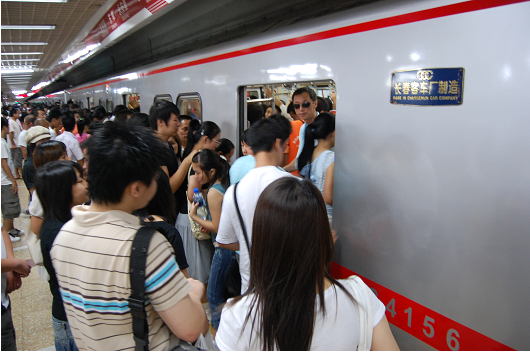
The subway is definitely preferable to interminable taxi rides on the city’s jammed streets. From 1999 to now millions of cars have filled the wide boulevards and not-so-wide side streets. Bikes are ubiquitous, but are frequently electrified. Cars are of every conceivable make and model thrum through traffic. Green and yellow taxis abound; the last of the creaky red sputtering Xiali brand cars have been purged from the streets. Beijing is one of the easiest city of my recent memory to hail a cab (and they’ve got AC, too) and a half-hour jog through the city costs about five bucks.
We have tickets for the Cuba-USA baseball game tomorrow and are heading out on our first full day to see if there are any other venues we might get into.
Fortunately, we are guided by our Man in Beijing, Henry Guo. Henry’s been invaluable to our operation and now we lean on him pretty heavily to see us through some of the more delicate maneuvers we need to make it into a few of the games.
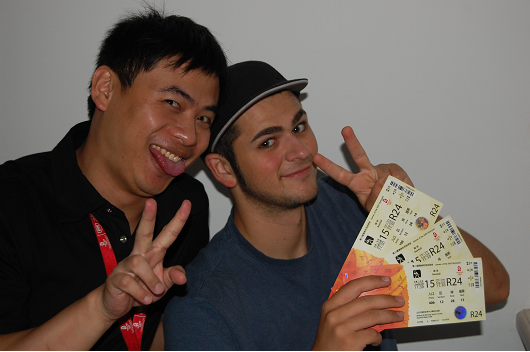
Scoring Tickets to Volleyball
The Olympics are spread about various locations around Beijing and far and wide throughout China, Beijing being the center of that universe. Other events are being held in Qingdao on the coast (sailing) and Hong Kong (equestrian events). From the vantage point of hindsight, if one wanted to (and had the cash), it seems not impossible to get tickets to as many events as one can fill the time. We are modest about our objectives and seek only to supplement our baseball game with a day at the beach (volleyball competition).
Chaoyang park, site of the volleyball competition, is walking distance from our CIS lodgings. But we take a taxi anyway. We are deposited at the front gate. There is loads of subtle product endorsement spread about the city.
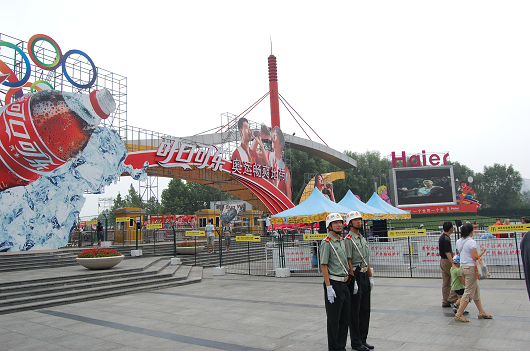
To get to the action, one must first enter the park. For about a dollar, we gain admittance to Chaoyang and seek out the shuffling, wary post-box office vendors. Signs are posted at regular intervals about the hazards and official frowning about such activity, so we are equally wary.
Outside the volleyball event, we wait, observe and get a little intelligence before entering into any negotiations. Hanging around, looking like the human equivalent of chum, we draw the attention of one shark with a single ticket who is looking to exchange 300 RMB (about $40 US) for his property. We need three tickets, though. There is another entrepreneur who has what we need, but is asking 1000 RMB for each ticket. Now, beach volleyball at the Olympics is a pretty fun gig, but not at $125 a pop, so we bide our time.
We buy a couple of waters, sit and watch the parade of people going by, get a temporary Olympic tattoo and finally start up a little bit of reasoned dialogue going with the ticket purveyor, who eyes his watch a little nervously, knowing that his product is extremely perishable as time goes on (and with no other buyers in-sight).
Sensing his bird-in-the-hand and after some friendly broken-English (his) and very broken-Chinese (mine), we settle on 400 RMB for each. One really can’t say to have broken-Chinese when one never possessed intact Chinese, but it works. We take a celebratory, post-negotiation photo, gesturing in the universal “peace” or “my friend always does that behind my head” symbol.
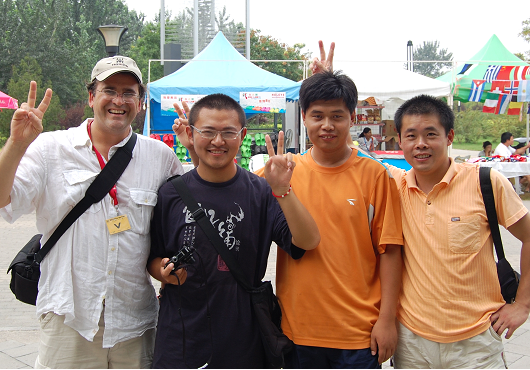
We’re in.
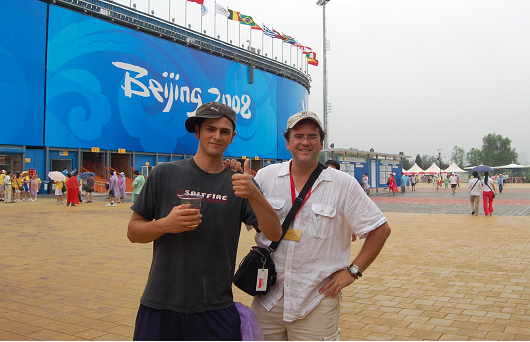
The matchups include Brazil v. Greece, Jamaica v. Spain in the women’s competition, and, once the rain came down in earnest during the men’s competition, China v. some other guys. I don’t know why I can’t recall at this point. My only excuse is that six hours of volleyball goes pretty quickly.
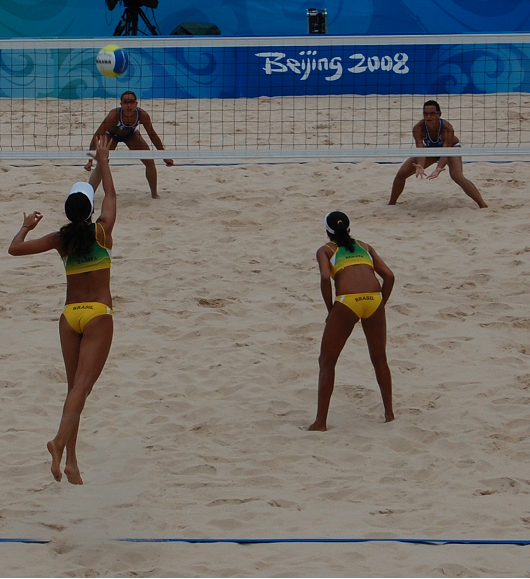
Most were happy to be there.
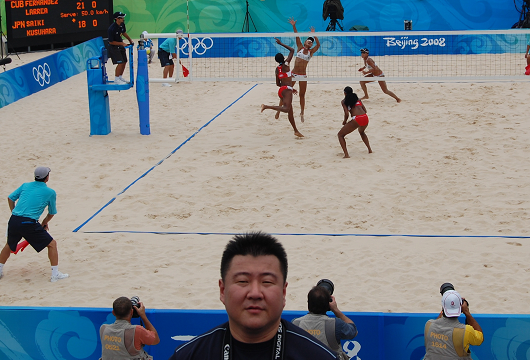
It would have gone a lot quicker if there weren’t these annoying little “entertainment” breaks in the action. Too many TV timeouts, I guess. I’m not entirely clear on who scheduled these little displays but the crowd seemed to enjoy them.

The weather came bringing some changes, offering up some thunder and lightning and an ever-increasing quantity of rain. The event staff was quick to distribute thousands of free plastic Easter-egg colored panchos, which, it turned out, were only mildly water repellent. In a short time, the masses were soaked to the skin. Picture-taking opportunities diminished rapidly and the crowd thinned out, but good humor was in abundance, for the most part: some didn’t think it was so wonderful.

But more than a few shared this fan’s enthusiasm, here posing with Sam.
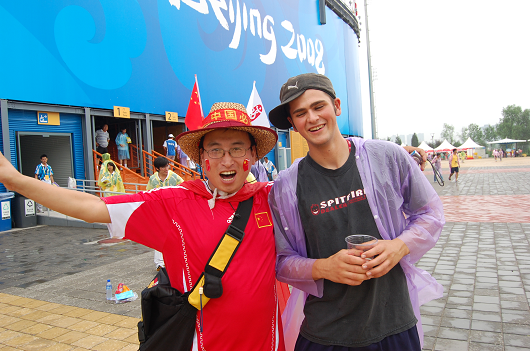
After the Chinese men’s team buried the competition, most of the attendees left the stadium. We were all herded, wet and shivering not a little into busses that took us somewhere.

Baseball
The next day dawned bright and clear: a picture-perfect day for baseball. An unusual thing happened in Beijing: white, whispy clouds hung on a deep blue sky. People on the street were unabashedly taking pictures of the unusual phenomenon.

The baseball game between the US and Cuba had all the elements of a good sporting row. The Cubans were generally cheered on by their communist compadres in China and chants were raised by friendly factions. The games were played on temporarily-erected ballparks (two of them) located at a large fairgrounds type of facility. The parks had great grass and while we were in the relative nosebleed section, the viewing (and the view) was good.
The China Central Television tower is on the upper left. A single Chinese fan is in the lower center as the US defense zeros in on a pop-fly to left field. (It was caught).

The game proceeded into an extra inning, tied at 3-3. Per Olympic rules, after 10 innings, if the game isn’t resolved, each team gets a runner on first and second. This, obviously increases the chances for scoring and it also increases the chances for forced-outs at either first, second or third base. Some mutterings were heard from the Americans in attendance who felt that the art of baseball should not be so callously manipulated. Get a life.
Our diamond reverie ended as the lead-off Cuban batter swatted the ball for a triple, which drove in the two base runners. The US team (batting last) replied with a single run and the Cubans prevailed, 5-4.
Some Other Goings-On in the City
Come back to this space to get a wrap on our trip and some background on this:
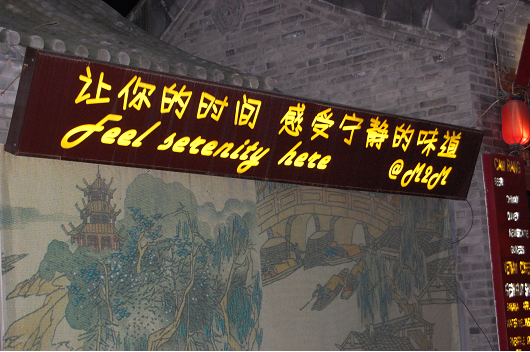
Oh, and I guess it would be good if I included at least one picture of this place, a new icon on the planet.

